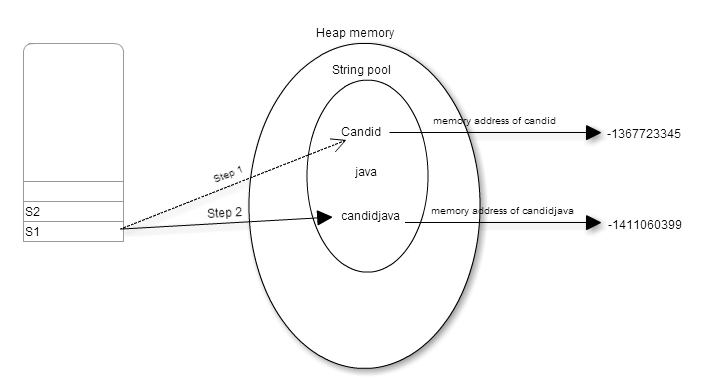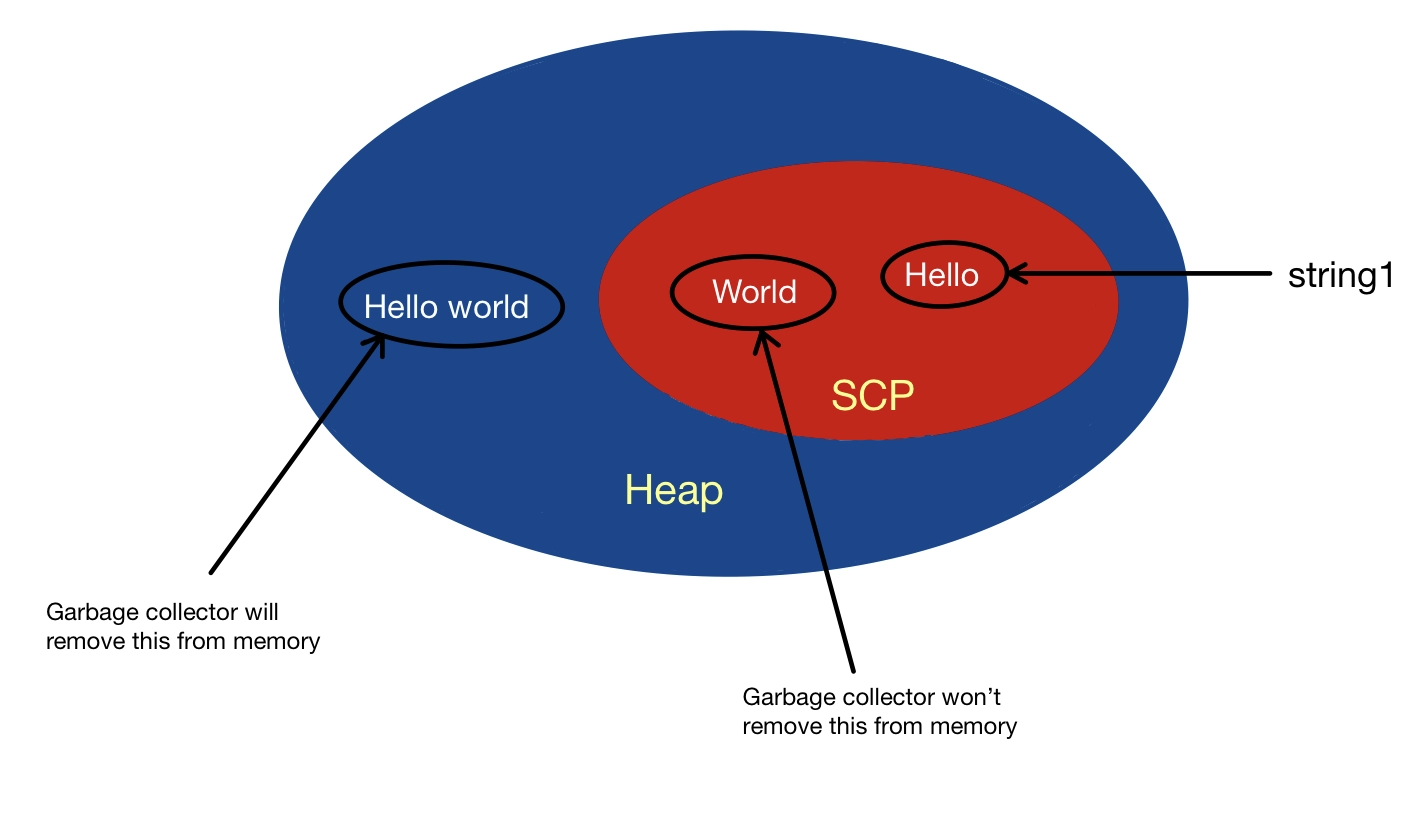Why Are Strings Immutable in Java? Finest Practices and Usage Cases
Why Are Strings Immutable in Java? Finest Practices and Usage Cases
Blog Article
What Is Immutable Strings and Exactly How It Functions
In the realm of programs, comprehending the concept of unalterable strings is paramount for producing safe and robust applications. Immutable strings refer to strings that can not be modified after they are produced, making sure information stability and predictability within the code. This basic concept plays a crucial role in numerous programming languages and uses an unique technique to dealing with data. By discovering the details of exactly how immutable strings function, one can discover a globe of benefits and possibilities that can raise the quality and performance of software application development.
The Essentials of Immutable Strings
Unalterable strings, as a basic concept in programming, are personality sequences that can not be altered as soon as they are created. This means that as soon as a string is designated a worth, that worth can not be altered. In languages like Python and Java, strings are immutable items, leading to various ramifications in regards to memory monitoring and information stability.
One of the crucial advantages of immutable strings is that they provide a complacency in information control. Given that the content of an immutable string can not be changed, it guarantees that the initial information continues to be intact, reducing the threat of unintended adjustments throughout program execution (Why are strings immutable in Java?). This building additionally streamlines debugging procedures, as designers can trust that once a string is specified, its worth will certainly not be unintentionally altered
Furthermore, unalterable strings promote reliable memory usage. When a new string is developed based upon an existing one, instead than customizing the original string, the brand-new worth is kept individually. This technique boosts efficiency by minimizing memory fragmentation and simplifying memory allocation procedures. Generally, understanding the basics of unalterable strings is crucial for grasping programs ideas and maximizing code effectiveness.
Advantages of Unalterable Strings
Building upon the safety and security and efficiency benefits of immutable strings, their benefits reach enhancing code dependability and simplifying simultaneous programs tasks. By being immutable, strings can not be modified after production, which gets rid of the threat of unexpected modifications in the data they keep. This intrinsic immutability guarantees that once a string is created, its value continues to be consistent throughout the program's implementation, minimizing the chances of pests triggered by unexpected modifications.
Furthermore, immutable strings contribute to code dependability by making it less complicated to reason concerning the state of a program. Because strings can not be transformed, programmers can rely on that a string will certainly constantly hold the very same worth, simplifying debugging and maintenance initiatives. This predictability causes more steady and reputable codebases.

Execution in Programs Languages
Within different programming languages, the incorporation of immutable strings is a fundamental aspect that affects exactly how information is managed and controlled within code structures. The execution of unalterable strings differs across different programs languages, with each language providing its very own mechanisms to support this principle.

In contrast, languages like C and C++ do not have integrated assistance for immutable strings. Developers in these languages need to by hand execute immutability by applying regulations within their code to avoid direct modifications to string items.
Ideal Practices for Functioning With Immutable Strings
When taking care of immutable strings in shows languages like Java and Python, sticking to ideal methods ensures safe and secure and efficient data control. One of the key ideal techniques is to utilize StringBuilder or StringBuffer instead of straight adjusting strings, particularly when dealing with comprehensive concatenation procedures. These courses offer mutable choices for string manipulation, aiding to prevent unnecessary memory appropriations and enhancing efficiency.
An additional ideal method is to utilize string this post interpolation or formatting works given by the language rather of hand-operated concatenation. This not just boosts readability yet also aids in protecting against usual mistakes such as unintended string adjustments. Additionally, when collaborating with delicate information such as passwords or API secrets, it is crucial to prevent saving them as simple text in unalterable strings. Making use of protected storage mechanisms like char arrays or specialized collections for handling delicate details aids mitigate safety risks linked with unalterable strings.
Real-world Applications and Instances
Exploring useful executions of immutable strings in numerous sectors discloses their considerable influence on data honesty and system reliability. In the medical care sector, unalterable strings play an important function in making sure the safety and confidentiality of individual information. By protecting against unauthorized modifications to sensitive details such check it out as clinical records and prescriptions, immutable strings help maintain compliance with rigorous personal privacy regulations like HIPAA.
Monetary establishments also take advantage of the unalterable nature of strings to enhance the security of client data and transaction records. Unalterable strings assist stop fraud and unapproved alterations to financial details, giving a durable defense versus cyber hazards and guaranteeing the trust and self-confidence of customers.

Verdict
Best techniques for functioning with immutable strings consist of preventing straight modifications and utilizing techniques that return brand-new string things. Real-world applications of immutable strings consist of data security, caching, and string manipulation jobs.
Unalterable strings refer to strings that can not be altered after they are produced, guaranteeing data honesty and predictability within the code. When a new string is produced based on an existing one, instead than customizing the original string, the new value is saved independently.In languages like Java and Python, strings are immutable by default, implying that when a string things is developed, its value can not be altered - Why are strings immutable in Java?. Best methods for functioning with unalterable strings consist of staying clear of straight adjustments and utilizing approaches that return brand-new string things. Real-world applications of unalterable strings include data file encryption, caching, and string control tasks
Report this page